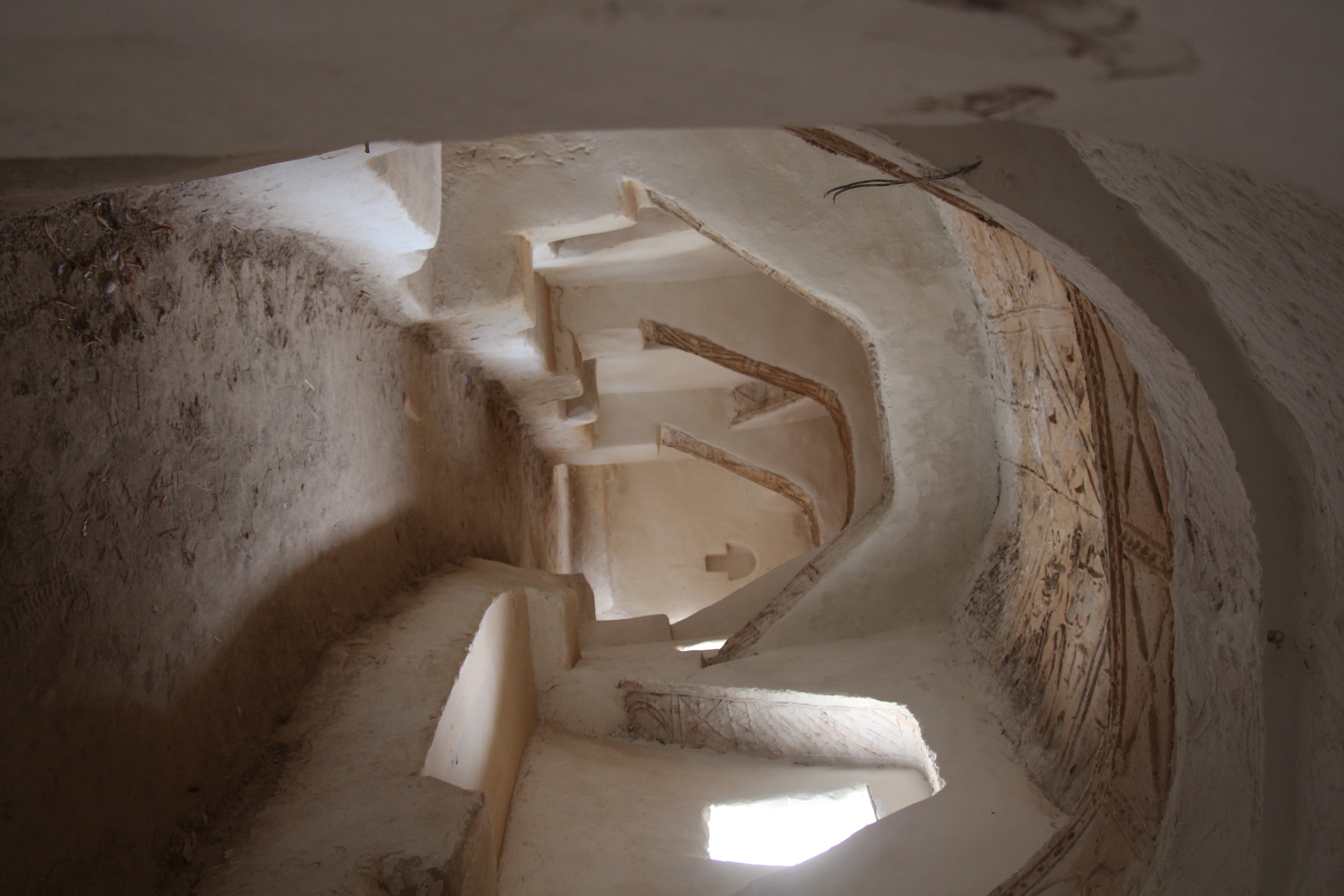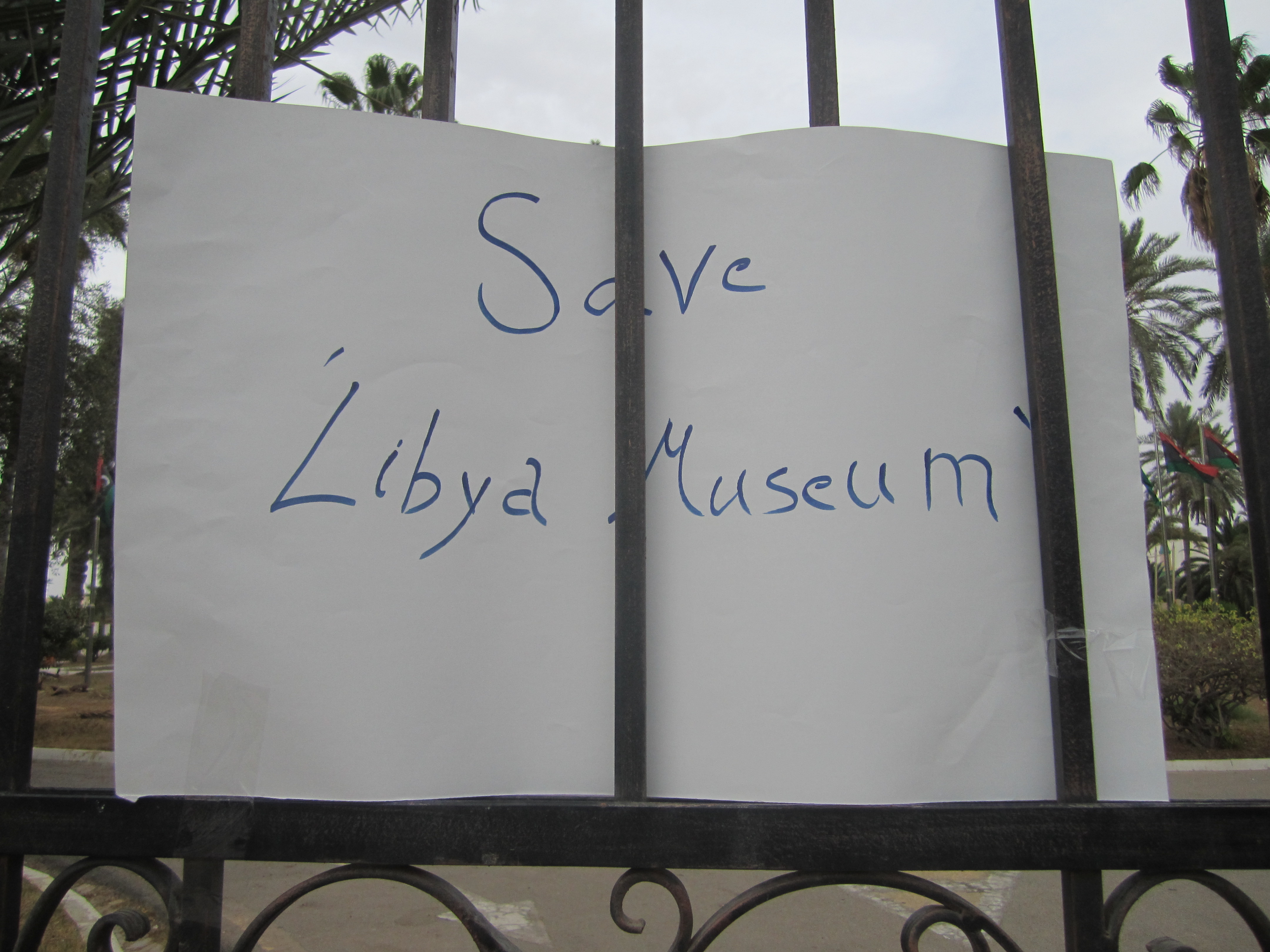By Osman Heshri and Nigel Ash
Tripoli, 13 September 2013.
By his own estimate, SSC commander Abdel Raouf Kara, has some 700 men . . .[restrict]directly under his command at his base at Mitiga airbase. They are divided into “seven or eight” units and their numbers can be swelled to around ten thousand if reserves are called in.
“Our members are not only from Suq Al-Juma area” he says, “but from all over Tripoli. In fact, we have even some from outside Tripoli. They are all always ready for duty.”
The second most powerful thuwar leader in the capital after Hashim Bishr, the commander of the city’s Supreme Security Committee (SSC), Kara has a fearful reputation which is belied by his softly-spoken manner and quiet and thoughtful responses to questions from the Libya Herald, in one of the few press interviews he has given.
The 34-year-old Kara abandoned his Suq Al-Juma metal-working business to join the revolution. He has, he says no political ambitions: “I hope to go back to the job I used to do, but circumstances forced me to do what I am doing. I do not profess to know much about politics nor security matters”.
In his own interview with this newspaper in June, Hashim Bishr protested that he himself thought the SSC should be disbanded and security and law and order taken over by the police and army. Kara echoes, but expands, on this view.
“I agree with him that all members must join either the army or the police force. At the very start, our only task was to help liberate Libya from Qaddafi”, he says. “But after that we found ourselves providing security. And from there we found ourselves in a place of responsibility. Such a thing is a burden placed on our shoulders. Before the liberation, we were in constant touch with the NTC, and they used to tell us that we would only be needed for three days and then the National Army will take over! Unfortunately, it looks like the army will not take over for the next 30 years.”
He says that when that SSC was first formed, most of the thuwar joined its ranks because they knew it was made up of the thuwar and run by the thuwar. That they have not since moved en masse into the ranks of the police and army is, he says, because the government is considered suspect.
“There is no trust between the thuwar and the government because the government unfortunately keeps appointing people who are associated with the old regime. When any of the Thuwar finds himself being instructed by a boss who is associated with the old regime, it is natural that he feels as if the previous regime is still in control.
“This issue is the main reason why the thuwar do not join the government institutions quickly. When there was Fawzi Abdelal as the Interior Minister and Osama Juwaili as the Defence Minister [in the Al-Kib government], the thuwar were more eager to join.”
Kara says that he does not condemn everyone who worked in the Qaddafi regime. “We have relatives and friends who used to work in it. But they were not involved in any bloodshed. They did not assassinate people abroad nor were they accused of stealing public money. Such people are welcome to live among us. As for those whom the Qaddafi regime used to suppress people for 42 years until the advent of the 17 February Revolution, such people are not wanted at all.”
Kara continues: “If anyone is accused of murder or theft, he should be held accountable according the crime he has committed. We must not kill someone simply because he used to torture Libyans in prison during the time of Qaddafi. The highest punishment in such a case would be to torture this person in the same manner. However, it should not be me who carries out the sentence. It should the relevant authority or the government.”
He adds: “We are Muslims and, in Islam, the Muslim blood is sacred. Therefore we will not be able to forgive anyone who helped in the killing of Libyans. He must be punished, in order to be an example to others and so as not to do it again. But such a thing can be found even in European countries. They have a penal code. Anyone does anything wrong gets punished.”
Kara is scornful of the killings that have been happening in Benghazi. “You cannot compare Tripoli with the eastern region” he says,” A different ideology exists there, such as the Takfeer group, Khawaraj group and other fighting groups. We can never compare that with Tripoli. The eastern region has different approach, which has nothing to do with the religion. Why there, anyone who worked for the Qaddafi’s intelligence services gets assassinated”.
The Libya Herald spoke to Kara in a long room furnished as a traditional diwan with heavy carpets and cushions around the walls. A large air-conditioning unit blasted cold air into the place. Though Kara was fasting that day, (he fasts every Monday and Thursday), aides produced coffee and sweetmeats for his guests. Except for when he broke off for evening prayers at the other end of the room, Kara knelt on or cradled a large cushion, often stroking his beard during translations. Throughout the two hour interview his mobile phone on the carpet beside him, rang a score of times and he reached out and killed each call with barely a glance at the screen.
Kara says that whether they are affiliated with the Interior Ministry or with the Army, all SCC units are paid by the government, adding, “ all other expenditures are met by donations. People donate money to us to maintain security and to provide protection”.
Thuwar are paid LD 557 a month. He says that when they first joined, they were promised higher wages, with figures ranging from LD 800 to LD1800 monthly, but this money has not been paid.
“We work under exceptional circumstances, ” he says, “and endanger our lives. Moreover, the tasks we carry out are far greater than that of the army. But they get paid LD 1200 per month. The country is in need of protection from inside. We do not fear any outside enemy. Our task is to secure institutions and protect citizens in order to establish the state”.
Kara says that he is under the command of Tripoli SSC chief and the Ministries of the Interior and Defence, but accepts that on occasions he acts independently: “Sometimes I have to take decisions, because no one will be willing to instruct you. No one wants to take the responsibility of protecting the people and institutions.”
He mentions Hashim Bishr and speaks of the “tremendous workload” the SCC commander has to manage on a daily basis. He also denies reports that he and Bishr were childhood friends in Suq Al-Juma. “ I got to know him during the revolution, ” he explains with a smile, “ We were never school friends.”
At one time Kara was associated with another thuwar formation, the Nawasi brigade. The Libya Herald asked him about his relationship with the unit. “This brigade consisted of about 150 members. I was stationed there for a while but I noticed many things which I was not pleased about and I broke off about a year and half ago. The Nawasi members were doing many things wrong and were treating people badly. I was not pleased by that. They would stop people who tried to come to see me and deny them access. I am here to serve people,” he adds.
There have been reports that Mitiga airbase has up to nine separate prisons in which suspects are held. Kara says there are only two, one run by Bishr and one run by him. He agrees that among others, his facility holds four Ukrainians who have been accused of assisting the Qaddafi regime during the revolution. Twenty four other East Europeans, two Russians, three Belorussians and nineteen more Ukrainians last month had their convictions and sentences in a military court overturned, on the grounds that they should have had a civilian trial. That re-trial is now pending. The Libya Herald asked Kara if the four Ukrainians at Mitiga would be included in the new trial.
“If or when there is a proper and fair judicial system,” he replies, “they will be put before a court of law. But the judicial system does not exist right now. We are pressured by the government to hand them over, but there is no real state to hand them over to.
“If it were up to me, I would have sent them back to their countries a long time ago, because these people were tempted by money. There is no evidence that they killed anyone. Some of them were only arrested because of their country’s association with the Qaddafi regime, i.e Ukraine and Russia, which provided armament experts.
.“Anyone of them accused of murder must be held accountable but those who did not kill anyone must be allowed to go home,” he says, adding, “the detainees are in good health and are well looked after”.
The 24 East European engineers are currently held in Zintan, having been moved from their jail in Fallah district off the Airport Road before the June fighting between rival brigades in Abu Selim and Salahuddin. Kara provides an interesting insight on an event that happened when that fighting ceased. Some days later, the Qaaqaa Brigade took over the Ministry of the Interior compound on the Airport Road. There was widespread speculation that other brigades in the capital were going to attack them and reports that thuwar from Derna had come to Mitiga to assist in the operation.
Kara denies that there were ever any units from the east, but admits that “seven or eight” Derna commanders had visited Mitiga, adding “ but we did not meet up with any of them”.
He does, however, confirm that there was a high-level meeting between rival thuwar commanders and army personnel, during which it was agreed that no action would be mounted against the Qaaqaa in their positions at the Ministry of the Interior. Moreover, special care would be taken to rein in any thuwar members who decided to act independently.
“We held a meeting during the events of Abu-Salim which was attended by Hashim Bishr, myself, Azhar Fanan, Abdulla Assaid, Brigadier Abdul-Rahman Taweel, the person of charge of supplies, Colonel Fathi Bin-Issa, and several other people who are army colonels.
“We tried hard to prevent any bloodshed. If losses were limited only to property and cars, these things are not as important. We did our best, however, to protect people and institutions in order to resume life as normal.”
Invited to speculate on why the Qaaqaa had occupied the Interior Ministry site, Kara replies:“There are people who said that the attack on the Interior Ministry building was to steal some documents. I have no idea what those documents were! But I think such documents, if there were any, are to do with financial matters, because the state is relatively new. I doubt such documents had anything to do intelligence or state secrets”.
Kara accepts that the challenges facing the country are considerable. He says that the problem lies with Libyans themselves and what he describes as tribalism. To this, he says, has been added the 16,000 convicts Qaddafi released from jails, who now have a perfect environment in which to operate.
“There is also the fight for power. I believe that there must be a decisive authority and that is the integrity of the state. At the moment the government does not exist. It is basically hollow. But I am an optimist by nature and hope that the country will get on the right track.” [/restrict]











